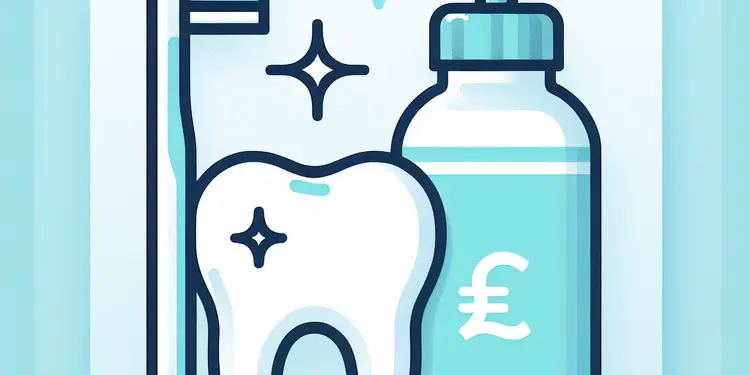
Find Help
More Items From Ergsy search
-
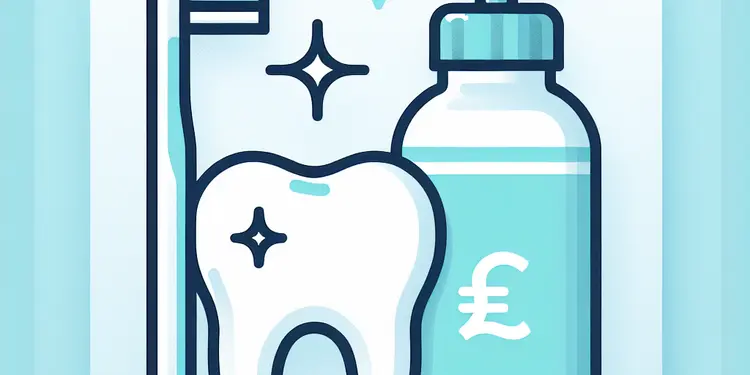
Can using mouthwash prevent tooth decay?
Relevance: 100%
-
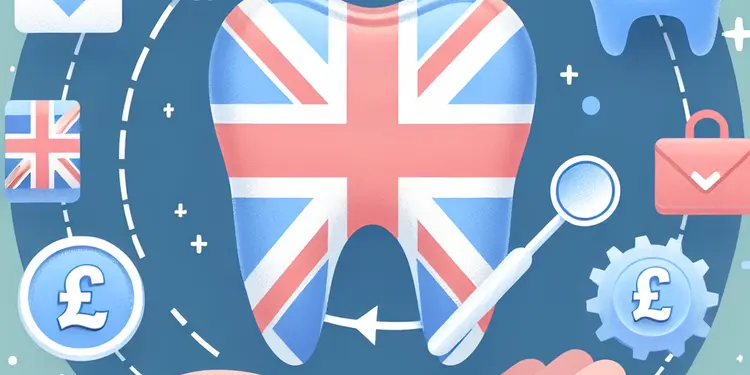
Can tooth decay be reversed?
Relevance: 70%
-
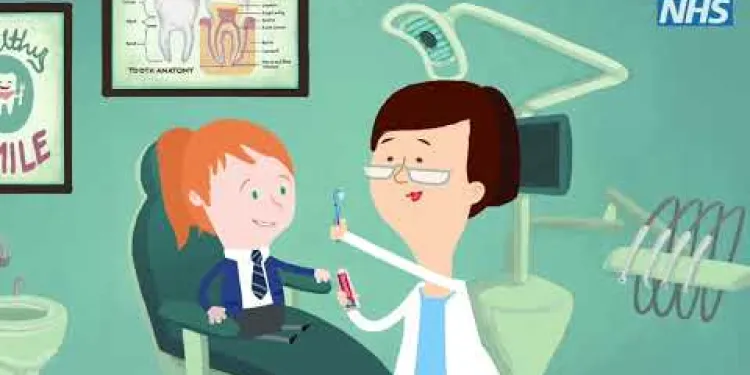
Oral Health Awareness - Tooth Decay
Relevance: 69%
-
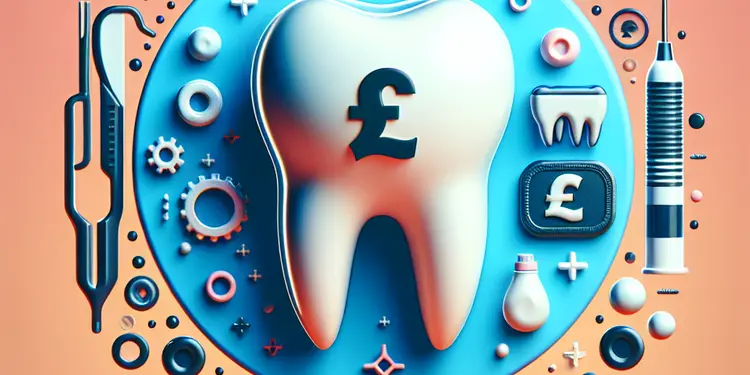
How can I prevent tooth decay?
Relevance: 67%
-

How is tooth decay diagnosed?
Relevance: 65%
-
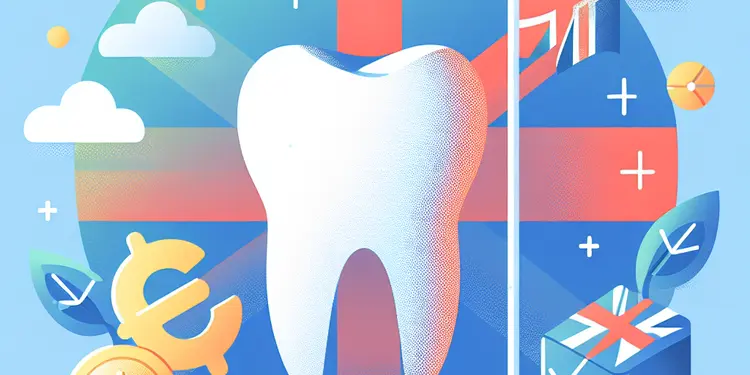
What are the symptoms of tooth decay?
Relevance: 65%
-
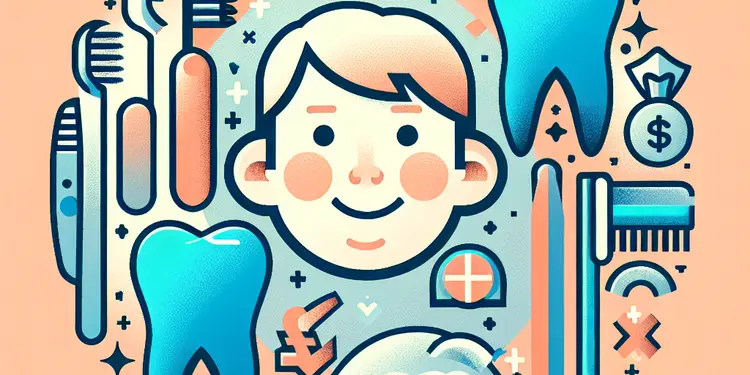
Is tooth decay common in children?
Relevance: 65%
-
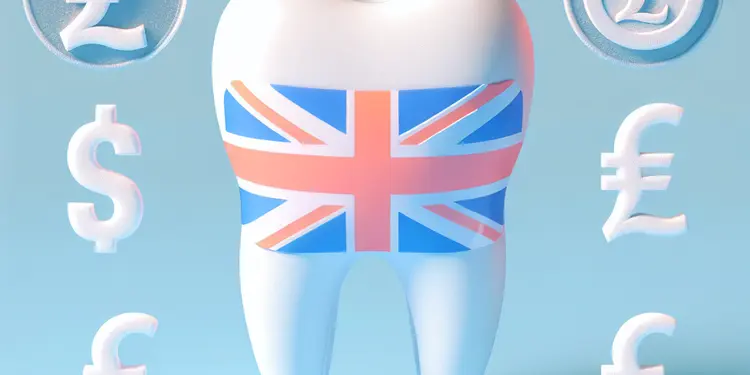
How does diet affect tooth decay?
Relevance: 60%
-
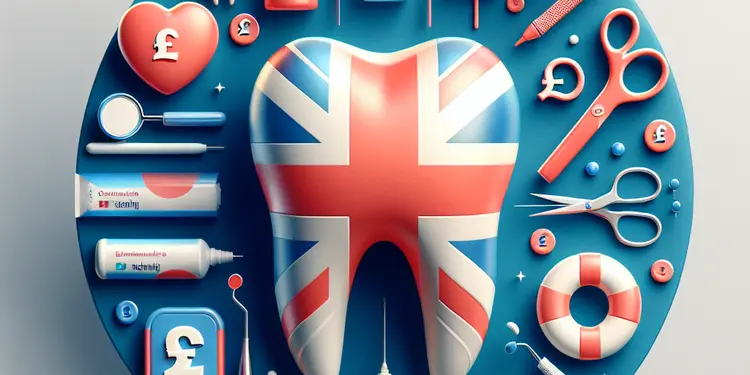
How does fluoride help prevent tooth decay?
Relevance: 56%
-
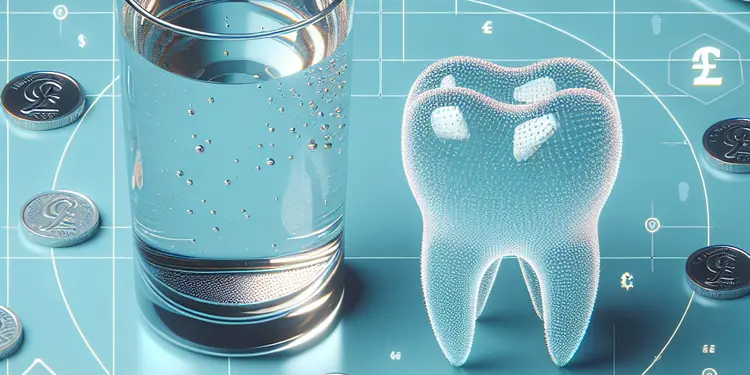
Can drinking water help prevent tooth decay?
Relevance: 56%
-
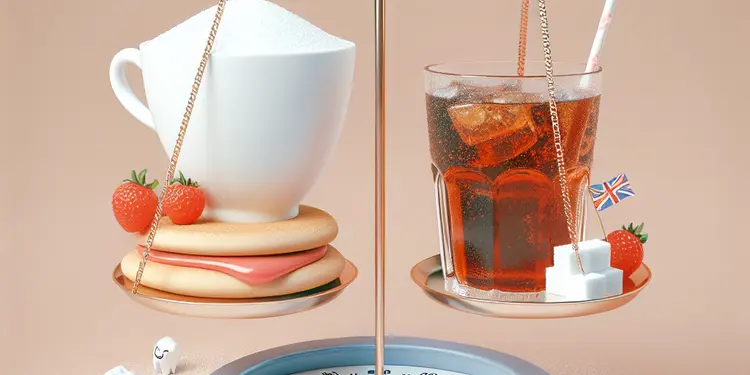
Are sugary drinks worse than sugary foods for causing tooth decay?
Relevance: 54%
-
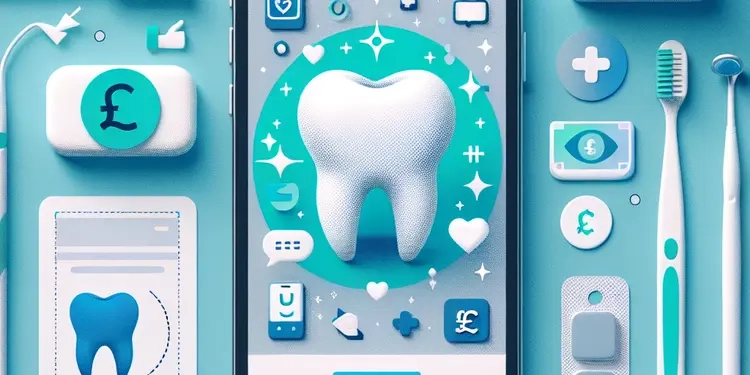
What is tooth decay?
Relevance: 50%
-
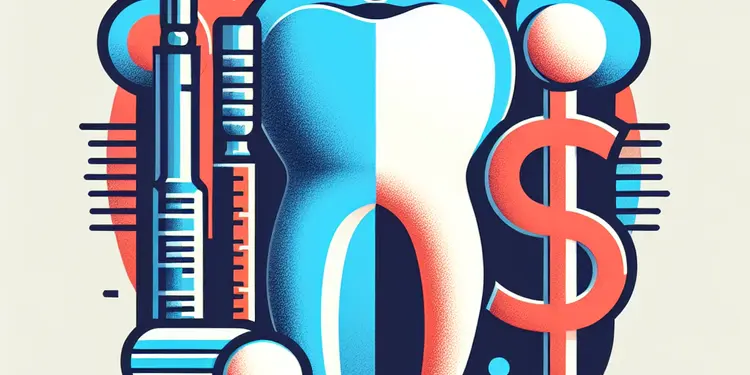
What is the role of dental sealants in preventing tooth decay?
Relevance: 50%
-
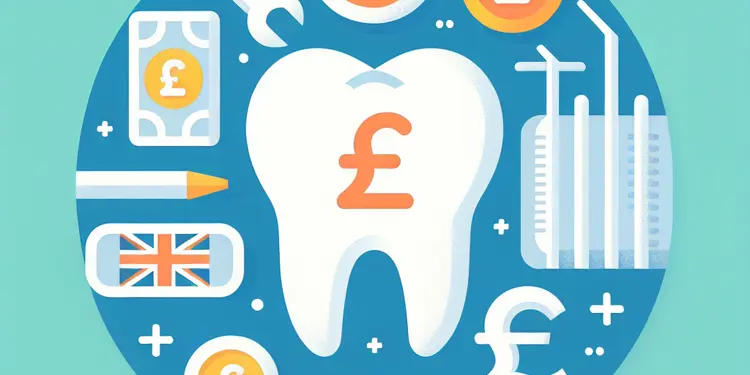
What treatments are available for tooth decay?
Relevance: 45%
-
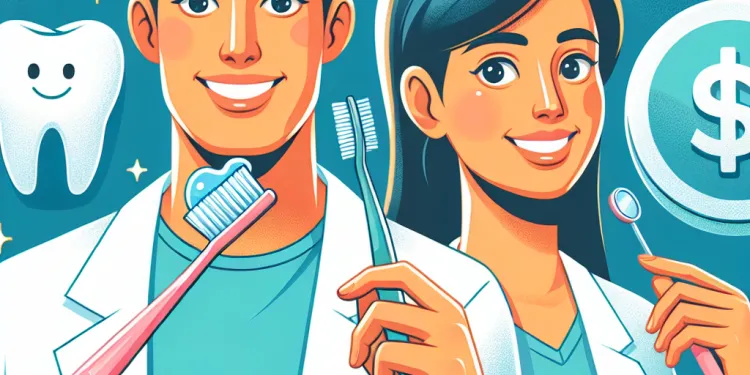
Dental Health: Tips for All Ages
Relevance: 39%
-
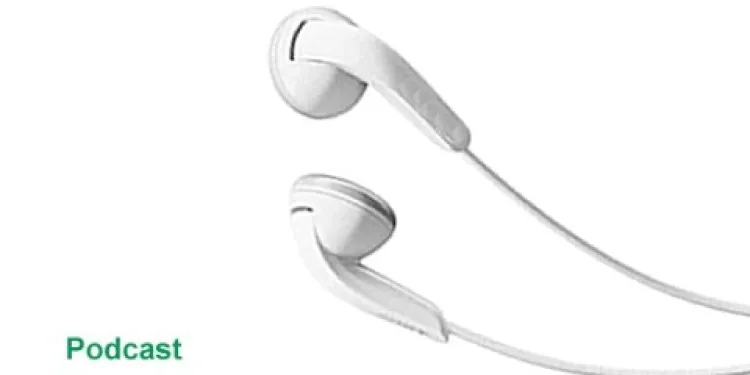
Coping with dry mouth
Relevance: 21%
-

How can I satisfy my sweet tooth without consuming sugar?
Relevance: 20%
-
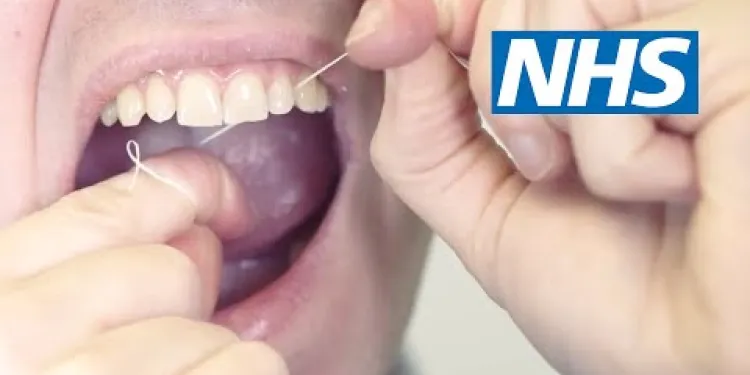
How to floss | NHS
Relevance: 18%
-

Is orange juice acidic and can it affect teeth?
Relevance: 17%
-

What treatments are covered by the NHS dental service?
Relevance: 15%
-

Are Turkey Teeth only for aesthetic purposes?
Relevance: 15%
-

How much sugar should I eat every day?
Relevance: 15%
-
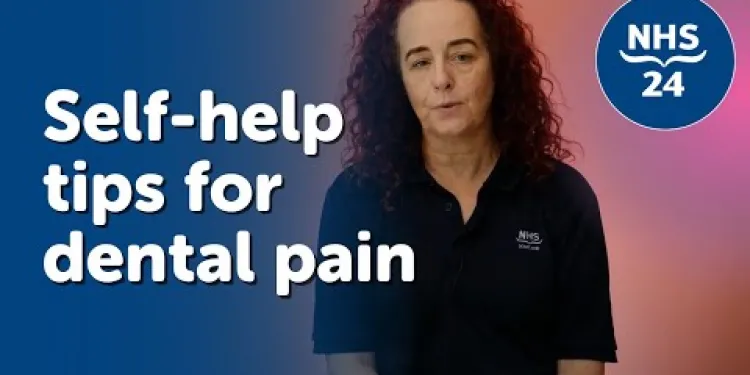
NHS 24 | Self-help tips for dental pain
Relevance: 14%
-
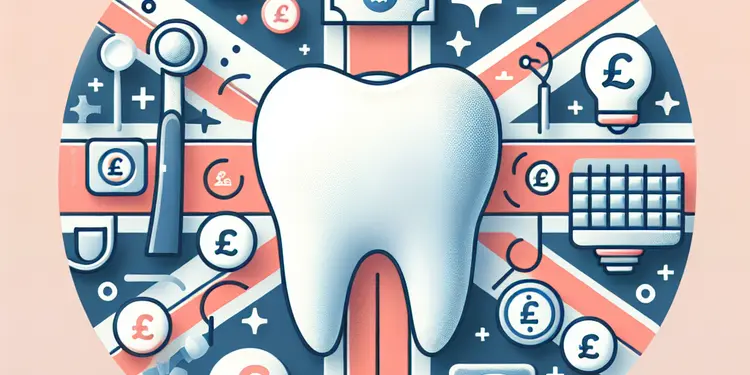
What is the difference between veneers and crowns?
Relevance: 14%
-

What are 'free sugars' and why should they be limited?
Relevance: 13%
-
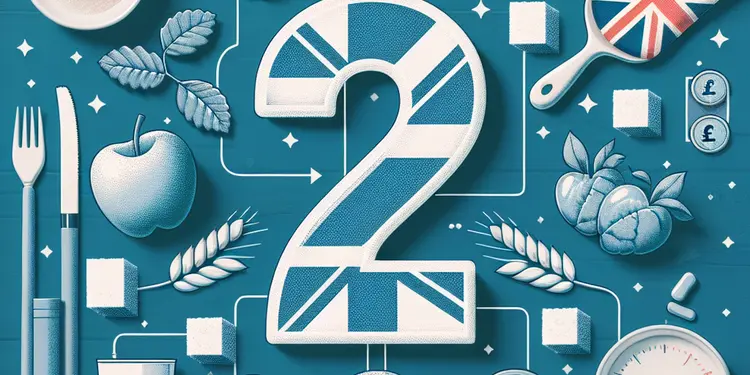
What is the role of sugar in a balanced diet?
Relevance: 13%
-
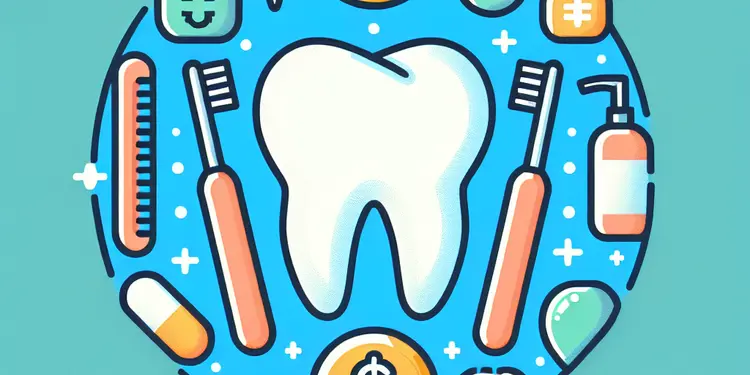
What if I need urgent dental care?
Relevance: 13%
-

Why is it important to limit sugar intake?
Relevance: 12%
-
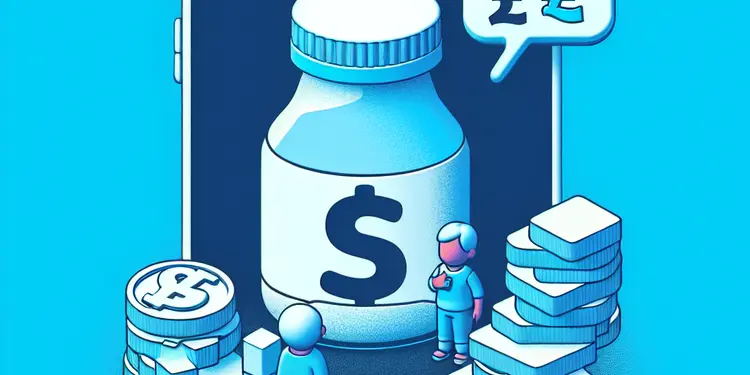
How many grams of sugar should a child consume daily?
Relevance: 12%
-

How does junk food affect health?
Relevance: 12%
-
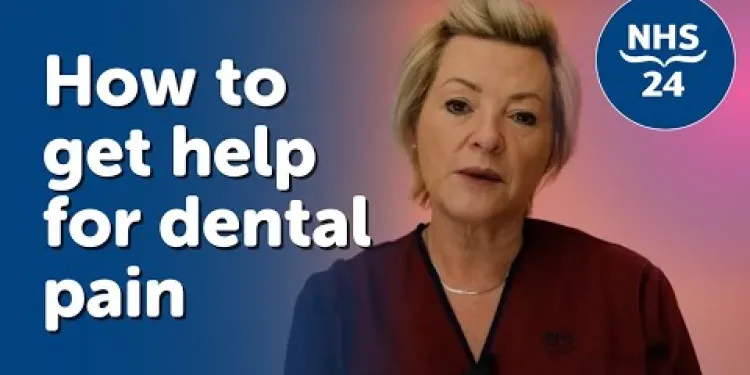
NHS 24 | How to get help for dental pain
Relevance: 12%
-
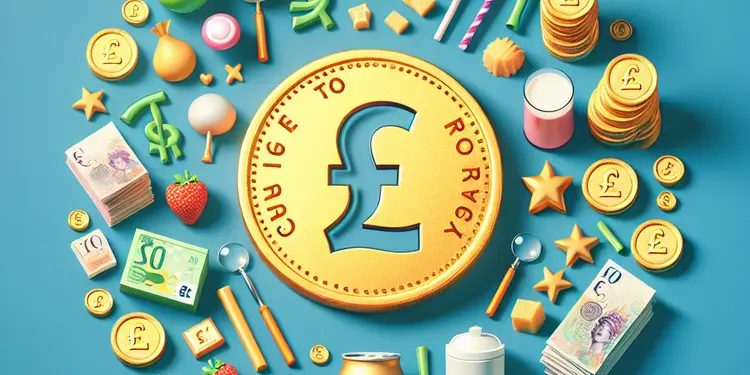
What are the long-term goals of the sugar tax?
Relevance: 12%
-

How can I maintain my Turkey Teeth after the procedure?
Relevance: 11%
-

Are Turkey Teeth the same as veneers?
Relevance: 10%
-

Can I get Turkey Teeth if I have existing dental issues?
Relevance: 10%
-
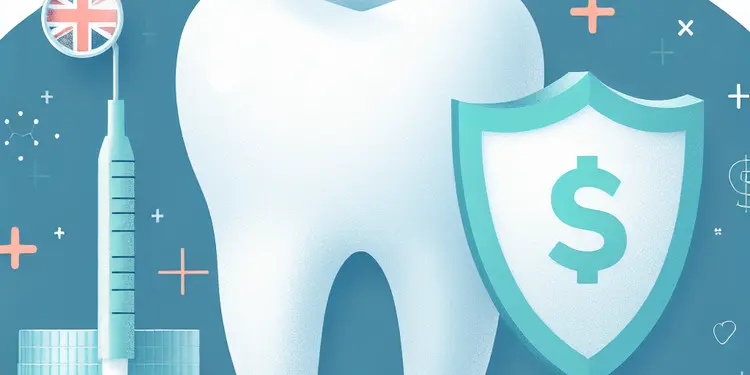
What treatments are covered by the NHS dental services?
Relevance: 8%
-
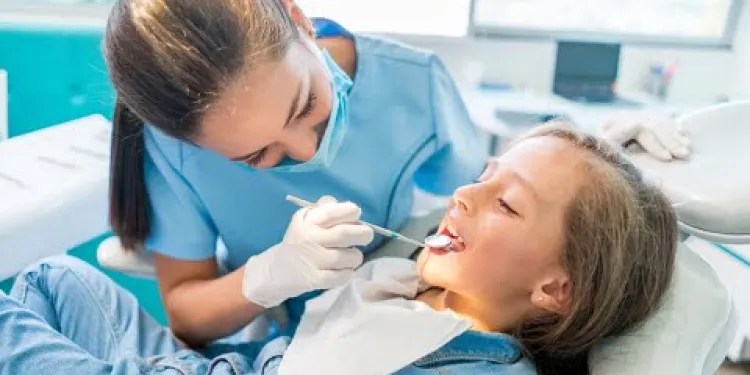
Can my child get braces on the NHS?
Relevance: 8%
-
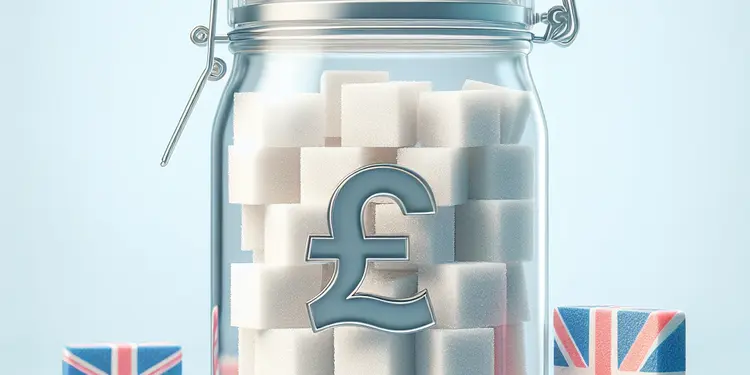
When was the sugar tax introduced in the UK?
Relevance: 8%
-
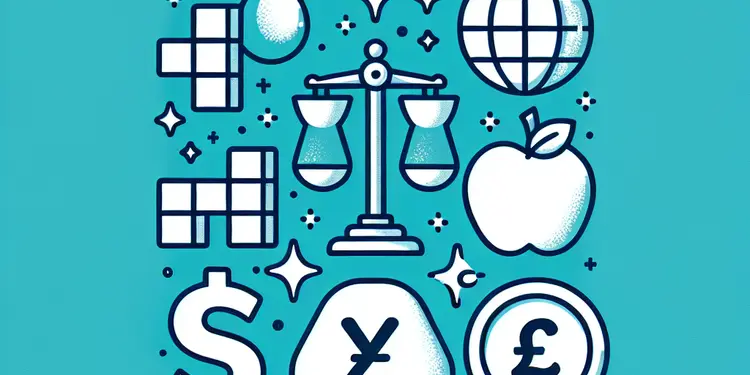
What is the purpose of the sugar tax?
Relevance: 8%
-
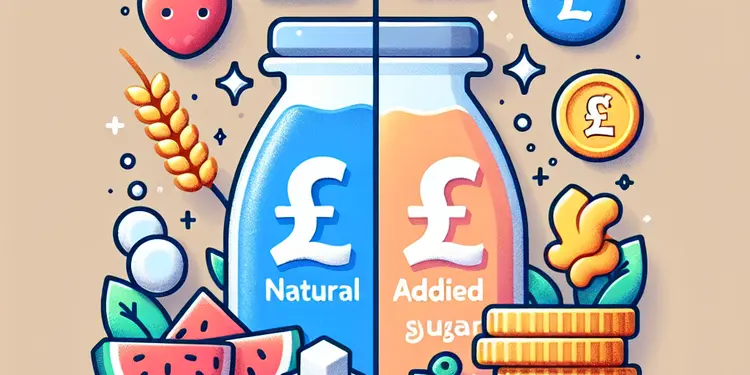
What is the difference between natural sugar and added sugar?
Relevance: 8%
Understanding Tooth Decay
Tooth decay, also known as dental caries or cavities, is a prevalent dental health issue that affects people of all ages across the UK. It occurs when the bacteria in your mouth produce acids that erode your tooth enamel, leading to cavities. Factors contributing to tooth decay include poor oral hygiene, excessive consumption of sugary foods and beverages, and the presence of plaque on teeth.
The Role of Mouthwash in Oral Hygiene
Mouthwash, often considered a supplementary oral care product, is designed to help maintain oral hygiene. Mouthwashes come in various formulations, including cosmetic and therapeutic types. While cosmetic mouthwashes primarily mask bad breath, therapeutic mouthwashes contain active ingredients like fluoride, essential oils, and antimicrobials, targeting specific oral health issues such as reducing plaque, gingivitis, and halitosis.
Mouthwash and Tooth Decay Prevention
Using mouthwash as part of your oral care routine can contribute to the prevention of tooth decay, but it should not be viewed as a standalone solution. Mouthwash containing fluoride can help strengthen tooth enamel, making it more resistant to the acids produced by plaque bacteria. This, in turn, can help reduce the risk of cavity formation. Additionally, mouthwashes with antimicrobial properties can help reduce the bacterial load in the mouth, further decreasing the likelihood of tooth decay.
Integrating Mouthwash into Your Oral Care Routine
While mouthwash can be beneficial, it should be part of a comprehensive oral hygiene routine. The primary measures for preventing tooth decay include brushing your teeth at least twice a day with fluoride toothpaste, flossing regularly to remove food particles and plaque from between teeth, and maintaining a balanced diet low in sugary snacks and drinks. Regular dental check-ups are also crucial for monitoring dental health and catching any early signs of tooth decay.
Choosing the Right Mouthwash
When selecting a mouthwash, it's important to choose one that suits your specific oral health needs. Consult with your dentist for recommendations, especially if you have a history of dental issues. Look for mouthwashes with the British Dental Association (BDA) seal of approval, indicating they meet the necessary standards for efficacy and safety.
Limitations of Mouthwash
Despite its benefits, mouthwash should not replace brushing and flossing. It is most effective when used as a supplement to these core practices. Additionally, excessive use of some mouthwashes, particularly those containing alcohol, can lead to irritation of the oral tissues. Always follow the instructions provided by the manufacturer or your dentist to ensure safe and effective use.
Conclusion
In conclusion, while mouthwash can aid in the prevention of tooth decay, it should be used as part of a broader oral care strategy. Adhering to a routine that includes proper brushing, flossing, appropriate dietary habits, and regular dental visits remains crucial for maintaining optimal oral health.
Understanding Tooth Decay
Tooth decay is when your teeth get holes called cavities. This happens when tiny germs in your mouth make acids that eat away the outer part of your teeth. People get tooth decay because they don’t brush their teeth well, eat lots of sweets and sugary drinks, and let sticky stuff called plaque stay on their teeth.
The Role of Mouthwash in Oral Hygiene
Mouthwash is a special liquid that helps keep your mouth clean. There are different kinds of mouthwash. Some just make your breath smell nice. Others have ingredients that help clean your teeth and gums. These can help with problems like bad breath and plaque, which is the sticky stuff on your teeth.
Mouthwash and Tooth Decay Prevention
Using mouthwash can help stop tooth decay, but it should be used with brushing and flossing. Mouthwash with fluoride makes your teeth stronger, so they don’t get holes easily. Some mouthwashes also kill germs in your mouth, which helps keep your teeth healthy.
Integrating Mouthwash into Your Oral Care Routine
Even though mouthwash helps, it’s not enough by itself. You should brush your teeth twice a day with toothpaste that has fluoride. Also, use floss to clean between your teeth. Eat fewer sugary snacks and drinks. Don’t forget to visit the dentist regularly to check your teeth and keep them healthy.
Choosing the Right Mouthwash
When picking a mouthwash, find one that helps your teeth. Ask your dentist if you are unsure. Look for mouthwashes approved by experts, so you know they are safe and work well.
Limitations of Mouthwash
Mouthwash is helpful, but it’s not a substitute for brushing and flossing. Using too much mouthwash with alcohol can irritate your mouth. Always read the instructions or ask your dentist how to use it safely.
Conclusion
In summary, mouthwash can help prevent tooth decay, but it should be part of a full plan to keep your teeth healthy. Brush and floss your teeth, eat healthy foods, and see your dentist often. These actions will keep your mouth in great shape.
Frequently Asked Questions
Can using mouthwash prevent tooth decay?
Using mouthwash can help prevent tooth decay by reducing bacteria in the mouth, but it should be used in conjunction with brushing and flossing.
How does mouthwash help prevent tooth decay?
Mouthwash helps prevent tooth decay by killing bacteria that contribute to plaque buildup, which can lead to cavities.
What ingredients in mouthwash prevent tooth decay?
Ingredients such as fluoride, cetylpyridinium chloride, and essential oils in mouthwash can help prevent tooth decay by reducing plaque and remineralizing enamel.
Is fluoride mouthwash effective against tooth decay?
Yes, fluoride mouthwash is effective in helping to prevent tooth decay by strengthening tooth enamel and reducing cavity risk.
Can mouthwash replace brushing in preventing tooth decay?
No, mouthwash cannot replace brushing. It should be used as a supplement to brushing and flossing for optimal oral health.
How often should I use mouthwash to prevent tooth decay?
Using mouthwash once or twice a day, as directed, is generally effective in helping to prevent tooth decay.
Should I use mouthwash before or after brushing?
It's often recommended to use mouthwash after brushing to help wash away residual bacteria and freshen breath.
Can children use mouthwash to prevent tooth decay?
Children over the age of 6 can use mouthwash, but it should be alcohol-free and used under supervision to ensure they do not swallow it.
Does alcohol in mouthwash help prevent tooth decay?
Alcohol can help kill bacteria, but it is not necessary for preventing tooth decay. Alcohol-free mouthwashes can also be effective.
Are there specific mouthwash brands better for preventing tooth decay?
Brands that contain fluoride or are specifically formulated for cavity prevention are typically recommended for preventing tooth decay.
Can natural mouthwashes prevent tooth decay?
Natural mouthwashes with ingredients like essential oils may help reduce bacteria but may not be as effective as fluoride-based products in preventing decay.
Do I need a prescription mouthwash to prevent tooth decay?
Most over-the-counter mouthwashes are effective for general dental care, but in some cases, a dentist may prescribe a stronger mouthwash for specific needs.
Is antibacterial mouthwash important for preventing tooth decay?
Antibacterial mouthwash can help reduce bacteria levels, which is beneficial in preventing plaque and potential tooth decay.
How long should I rinse with mouthwash to prevent tooth decay?
Typically, you should rinse with mouthwash for 30 to 60 seconds to maximize its effectiveness in reducing bacteria and protecting against decay.
Can mouthwash worsen my dental health?
Overuse or incorrect use of mouthwash, especially those with alcohol, can potentially irritate gums but generally does not worsen dental health if used correctly.
Are there any side effects of using mouthwash daily?
Some people may experience irritation or dryness if using mouthwash excessively, especially those with high alcohol content.
How does mouthwash fit into my daily oral care routine?
Mouthwash is used after brushing and flossing to remove residual bacteria and provide additional protection against tooth decay.
What is the best type of mouthwash for sensitive teeth?
For sensitive teeth, a fluoride mouthwash without alcohol is often recommended to prevent decay without causing irritation.
Does mouthwash affect the pH balance in my mouth?
Mouthwash can help neutralize the pH in your mouth, making it less acidic and reducing the risk of tooth decay.
Can I make homemade mouthwash to prevent tooth decay?
While homemade mouthwash using salt, baking soda, or essential oils can help with oral hygiene, they are generally not as effective as commercial fluoride rinses in preventing tooth decay.
Does mouthwash stop teeth from getting holes?
Mouthwash helps keep your teeth healthy. It does this by getting rid of some germs in your mouth. But you still need to brush your teeth and use floss too.
How does mouthwash help stop tooth decay?
Mouthwash is a special liquid used to clean your mouth. Here is how it helps:
- Kills germs: Mouthwash can kill germs in your mouth. Germs can cause tooth decay, which means your teeth can get holes and hurt.
- Reaches all areas: Mouthwash can go to places your toothbrush might miss. This helps keep your whole mouth clean.
- Freshens breath: Mouthwash makes your breath smell nice. This can help keep your mouth feeling fresh.
- Strengthens teeth: Some mouthwashes have fluoride. Fluoride makes teeth strong and helps prevent tooth decay.
To use mouthwash:
- Measure: Pour the mouthwash into a cup. You might need an adult's help.
- Swish: Put the mouthwash in your mouth and swish it around for about 30 seconds. Do not swallow it.
- Spit: Spit the mouthwash out into the sink.
Ask your dentist if you have questions about using mouthwash.
Mouthwash helps stop tooth decay. It does this by killing germs. Germs make plaque, and plaque can cause holes in your teeth called cavities.
What is in mouthwash that stops teeth from getting holes?
Some things in mouthwash can help keep your teeth healthy. These things are called fluoride, cetylpyridinium chloride, and essential oils. They stop holes in teeth by getting rid of sticky stuff called plaque and making your teeth strong again.
Does fluoride mouthwash help stop cavities?
Fluoride mouthwash can help keep your teeth strong. It can stop holes, called cavities, from forming in your teeth.
Here are some tips to help you:
- Use fluoride mouthwash every day after brushing your teeth.
- Spit out the mouthwash after using it. Do not swallow it.
- Ask your dentist if fluoride mouthwash is good for you.
Yes, using a fluoride mouthwash can help keep your teeth strong. It makes your tooth surface harder and helps stop cavities.
Can mouthwash stop cavities like brushing teeth does?
No, mouthwash cannot take the place of brushing your teeth. Use it along with brushing and flossing for the healthiest mouth.
How often should I use mouthwash to keep my teeth healthy?
You can use mouthwash every day to help keep your teeth strong and healthy.
For best results, use mouthwash after you brush your teeth. This can help stop tooth decay (cavities).
If you have questions, ask your dentist or someone who takes care of your teeth. They can help you find the right mouthwash and how often to use it.
Using mouthwash one or two times a day can help keep your teeth healthy. Follow the instructions on the bottle.
When should I use mouthwash: before or after brushing my teeth?
It's best to use mouthwash after you brush your teeth. Brush your teeth first. Then, rinse with mouthwash. This helps keep your mouth clean.
Tools to help:
- Use a timer to brush your teeth for 2 minutes.
- Choose a mouthwash you like the taste of.
After you brush your teeth, it can be a good idea to use mouthwash. Mouthwash can help remove germs and make your breath smell nice.
Can kids use mouthwash to stop cavities?
Here's what you need to know:
- Mouthwash can help keep teeth clean.
- Kids should ask a grown-up before using mouthwash.
- It is important to brush teeth and floss every day.
Helpful tools:
- Use a timer to make sure you brush for 2 minutes.
- Find a toothbrush that fits your hand well.
Kids who are older than 6 can use mouthwash. It should not have alcohol in it. An adult should watch them to make sure they do not swallow it.
Does alcohol in mouthwash help stop tooth decay?
Mouthwash is a liquid you swish in your mouth to keep it clean. Some mouthwashes have alcohol in them. But alcohol in mouthwash does not stop tooth decay.
To keep teeth healthy:
- Brush your teeth two times a day with toothpaste that has fluoride.
- Floss between your teeth every day.
- Visit a dentist for check-ups.
- Eat healthy foods like fruits and vegetables.
If reading is difficult, you can try:
- Listening to audiobooks about teeth care.
- Using videos to learn how to brush and floss properly.
Ask a family member or friend if you need help.
Alcohol can help kill germs, but you don’t need it to stop holes in your teeth. Mouthwashes without alcohol can work well too.
Which mouthwash is best for stopping tooth decay?
Some mouthwashes are better at keeping teeth healthy. Look for ones with fluoride. Fluoride helps stop tooth decay. Ask a dentist for advice on what to use.
Helpful tip: Use pictures or videos to learn more about tooth care.
Toothpastes with fluoride are good for stopping holes in your teeth. Look for toothpaste brands that help keep your teeth healthy.
Can natural mouthwashes stop teeth from getting holes?
Natural mouthwashes are made from things like plants and herbs. They might help keep your teeth strong and healthy.
If you want healthy teeth, try these ideas:
- Brush your teeth two times a day.
- Use floss to clean between your teeth.
- Eat less sugar, like candy and soda.
- Go to the dentist regularly.
Some people like natural mouthwashes. These can be a part of keeping your teeth safe from holes. Talk to your dentist for more advice.
Natural mouthwashes with things like special plant oils can help to lower germs in your mouth. But they may not work as well as mouthwashes with fluoride to stop tooth decay.
Using a toothbrush and toothpaste with fluoride is a good idea too.
If reading is hard for you, try using audiobooks or voice-to-text tools like speech recognition on your phone. Also, asking someone to read with you can help.
Do I need special mouthwash from the dentist to keep my teeth healthy?
Most mouthwashes you can buy in shops are good for taking care of your teeth. But sometimes, a dentist might give you a special mouthwash if you need extra help.
Is it important to use antibacterial mouthwash to stop tooth decay?
Mouthwash can help keep your teeth healthy. Some mouthwashes have special stuff called antibacterial. This helps stop germs that can hurt your teeth.
Think about using toothpaste and mouthwash. They both help in different ways. Just like brushing and flossing, mouthwash can help keep your teeth strong.
Want an easy way to remember? You can try using a chart or set a reminder on your phone. This can help you remember to use mouthwash every day.
If reading is hard, you can ask someone to read to you or use a reading app that reads the words out loud.
Mouthwash that kills germs can help keep your mouth clean. It stops germs from growing, which helps keep your teeth healthy. This keeps your teeth from getting holes or rotten.
How long should I rinse with mouthwash to keep my teeth healthy?
You should use mouthwash for 30 to 60 seconds. This will help clean your mouth and protect your teeth.
Can mouthwash make my teeth and gums worse?
Using mouthwash too much or in the wrong way might bother your gums. But if you use it right, mouthwash usually does not hurt your teeth.
Is it okay to use mouthwash every day?
Some people want to know if using mouthwash every day can cause problems.
If you use mouthwash too much, it might:
- Make your mouth feel dry.
- Change how some food tastes.
- Make your gums feel sore.
If you are worried, it can help to:
- Talk to a dentist.
- Use a mouthwash made for daily use.
- Read the bottle to see how to use it safely.
Pictures or videos can help explain things better. If you have questions, ask a grown-up or a dentist.
Using too much mouthwash can sometimes make your mouth feel dry or sore. This is true, especially for mouthwashes with a lot of alcohol in them.
Here are some helpful tips:
- Use mouthwash only once or twice a day.
- Choose a mouthwash without alcohol if it makes your mouth feel better.
- Drink water to keep your mouth wet.
How do I use mouthwash every day?
You use mouthwash after brushing and flossing your teeth. It helps clean away any leftover germs and keeps your teeth healthy.
Which mouthwash is best for sensitive teeth?
If your teeth hurt when you eat or drink hot or cold things, they might be sensitive. To help, you can use a special mouthwash.
Look for a mouthwash that says "for sensitive teeth" on the label. These mouthwashes are gentle and can help make your teeth feel better.
You might also want to:
- Ask your dentist for advice.
- Use a soft toothbrush to clean your teeth.
- Be gentle when you brush your teeth.
Remember, taking care of your teeth is important!
If your teeth hurt when you eat or drink hot or cold things, they might be sensitive. To help protect your teeth, use a mouthwash with fluoride. Fluoride helps keep teeth strong. Make sure the mouthwash does not have alcohol, so it won’t hurt or sting your mouth.
Can mouthwash change the balance in my mouth?
Mouthwash can make changes to your mouth. It can change the pH balance. The pH balance is like a ruler. It shows if something is too sour or not sour.
If the pH is too sour, it can hurt your teeth. Using mouthwash every day might make changes. It can help keep your teeth and mouth healthy.
Some good ways to help keep balance in your mouth:
- Brush teeth two times each day.
- Use a toothpaste with fluoride.
- Get help from a grown-up if needed.
- Try an app or video if reading is hard.
Mouthwash can help balance the acid in your mouth. This makes it safer for your teeth and helps stop cavities.
Can I make mouthwash at home to stop tooth decay?
Yes, you can make mouthwash at home to help keep your teeth healthy. It is easy and safe to do. Here is a simple way to make it:
- Mix a cup of water with a teaspoon of salt. This can clean your mouth.
- Or mix a cup of water with a teaspoon of baking soda. This helps keep your mouth fresh.
Use the mouthwash after you brush your teeth. Swish it around in your mouth for 30 seconds, then spit it out.
It's important to still brush your teeth with toothpaste every day. Ask an adult to help you if you need it.
Look for videos or pictures online to see how to make and use mouthwash.
Making your own mouthwash at home with salt, baking soda, or essential oils can help keep your mouth clean. But, these are not as good as store-bought fluoride mouthwashes at stopping tooth decay.
Useful Links
This website offers general information and is not a substitute for professional advice.
Always seek guidance from qualified professionals.
If you have any medical concerns or need urgent help, contact a healthcare professional or emergency services immediately.
Some of this content was generated with AI assistance. We’ve done our best to keep it accurate, helpful, and human-friendly.
- Ergsy carfully checks the information in the videos we provide here.
- Videos shown by Youtube after a video has completed, have NOT been reviewed by ERGSY.
- To view, click the arrow in centre of video.
- Most of the videos you find here will have subtitles and/or closed captions available.
- You may need to turn these on, and choose your preferred language.
- Go to the video you'd like to watch.
- If closed captions (CC) are available, settings will be visible on the bottom right of the video player.
- To turn on Captions, click settings .
- To turn off Captions, click settings again.
More Items From Ergsy search
-

Can using mouthwash prevent tooth decay?
Relevance: 100%
-

Can tooth decay be reversed?
Relevance: 70%
-

Oral Health Awareness - Tooth Decay
Relevance: 69%
-

How can I prevent tooth decay?
Relevance: 67%
-

How is tooth decay diagnosed?
Relevance: 65%
-

What are the symptoms of tooth decay?
Relevance: 65%
-

Is tooth decay common in children?
Relevance: 65%
-

How does diet affect tooth decay?
Relevance: 60%
-

How does fluoride help prevent tooth decay?
Relevance: 56%
-

Can drinking water help prevent tooth decay?
Relevance: 56%
-

Are sugary drinks worse than sugary foods for causing tooth decay?
Relevance: 54%
-

What is tooth decay?
Relevance: 50%
-

What is the role of dental sealants in preventing tooth decay?
Relevance: 50%
-

What treatments are available for tooth decay?
Relevance: 45%
-

Dental Health: Tips for All Ages
Relevance: 39%
-

Coping with dry mouth
Relevance: 21%
-

How can I satisfy my sweet tooth without consuming sugar?
Relevance: 20%
-

How to floss | NHS
Relevance: 18%
-

Is orange juice acidic and can it affect teeth?
Relevance: 17%
-

What treatments are covered by the NHS dental service?
Relevance: 15%
-

Are Turkey Teeth only for aesthetic purposes?
Relevance: 15%
-

How much sugar should I eat every day?
Relevance: 15%
-

NHS 24 | Self-help tips for dental pain
Relevance: 14%
-

What is the difference between veneers and crowns?
Relevance: 14%
-

What are 'free sugars' and why should they be limited?
Relevance: 13%
-

What is the role of sugar in a balanced diet?
Relevance: 13%
-

What if I need urgent dental care?
Relevance: 13%
-

Why is it important to limit sugar intake?
Relevance: 12%
-

How many grams of sugar should a child consume daily?
Relevance: 12%
-

How does junk food affect health?
Relevance: 12%
-

NHS 24 | How to get help for dental pain
Relevance: 12%
-

What are the long-term goals of the sugar tax?
Relevance: 12%
-

How can I maintain my Turkey Teeth after the procedure?
Relevance: 11%
-

Are Turkey Teeth the same as veneers?
Relevance: 10%
-

Can I get Turkey Teeth if I have existing dental issues?
Relevance: 10%
-

What treatments are covered by the NHS dental services?
Relevance: 8%
-

Can my child get braces on the NHS?
Relevance: 8%
-

When was the sugar tax introduced in the UK?
Relevance: 8%
-

What is the purpose of the sugar tax?
Relevance: 8%
-

What is the difference between natural sugar and added sugar?
Relevance: 8%


